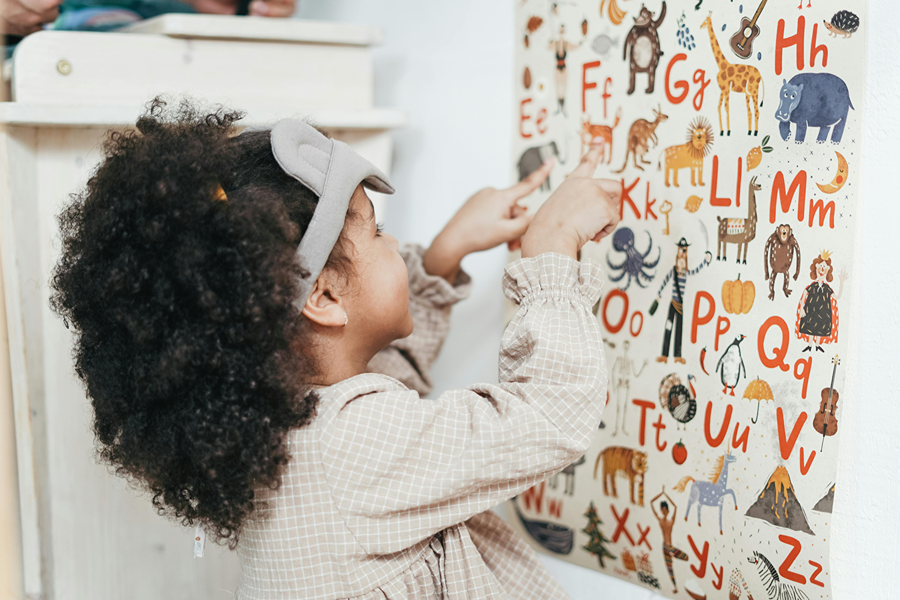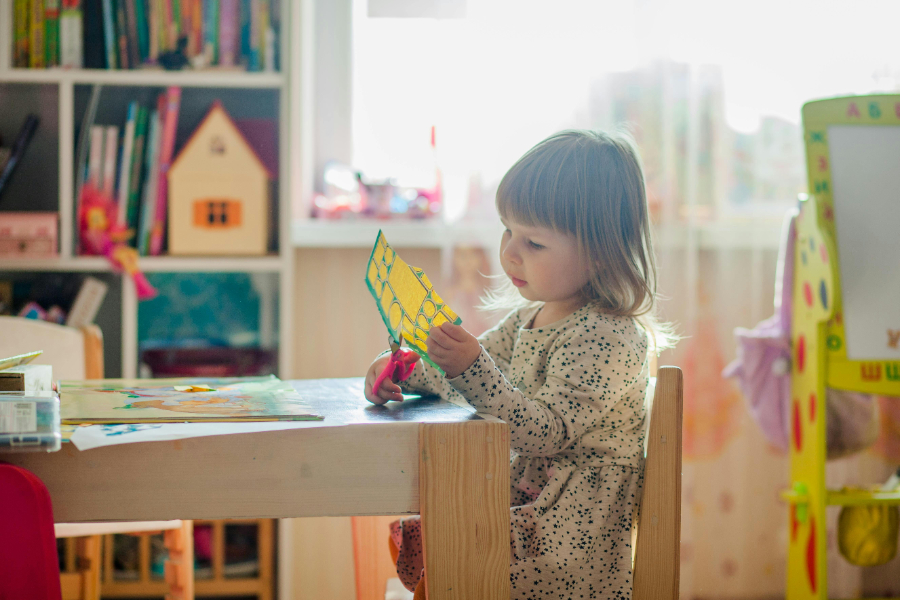
Starting kindergarten marks a significant milestone in a child's life, filled with growth, learning, and the development of foundational skills that will carry them through their educational journey. For homeschool parents, ensuring your child is ready for this next step can be both exciting and daunting. But fear not, as we've compiled a comprehensive Kindergarten Readiness Checklist to guide you through preparing your child for kindergarten at home.
Understanding Kindergarten Readiness
Before we dive into the checklist, it's important to address common questions and misconceptions about kindergarten readiness. Many parents believe that age and academic skills are the primary determinants of readiness. However, a child's interest in learning, ability to focus, and willingness to engage in hands-on experiences play a crucial role. A love for colorful books, storytelling, building, experimenting, and playing signifies a readiness to learn and grow.

Key Areas of Kindergarten Readiness
Children entering kindergarten should have exposure and some experience in the following six skill areas:
1. Language and Communication
- Speaks in complete sentences and is understood by others.
- Expresses needs and wants, and responds to questions.
- Understands and follows 2-3 step directions. “Please get your shoes and put them on”.
2. Reading and Writing
- Enjoys listening to stories and retelling simple ones.
- Recognizes most letter names and sounds.
- Recognizes simple rhyming words (hat, sat).
- Writes many letters and can draw straight and curved lines.
3. Math and Reasoning
- Identifies numbers 1–10 and counts items up to 10.
- Understands basic shapes and colors, and can compare objects.
- Recognizes simple patterns and classifies items into groups.
4. Social and Emotional Skills
- Interacts positively with peers and adults.
- Demonstrates the ability to take turns, share, and show respect.
- Shows attentiveness and patience during tasks and interactions.
5. Fine and Gross Motor Skills
- Exhibits proper pencil grip and uses scissors, glue, and small manipulatives effectively.
- Engages in physical activities like running, hopping, and throwing.
6. Independence
- Completes tasks independently or asks for help when needed.
- Manages personal care routines and transitions between activities smoothly.

Activities to Develop Readiness
The transition from preschool to kindergarten can be seamless with the right activities. Here are some engaging, educational activities to help your child develop these crucial skills:
- Storytelling and Reading: Spend time reading together and discussing stories to enhance language skills and comprehension.
- Letter and Number Games: Use our free educational games and others to make learning letters, numbers, and sounds fun and interactive.
-
Shape and Color Hunts: Organize hunts around the house for objects of different shapes and colors to develop reasoning and classification skills.
- Social Playdates: Arrange playdates with other children to foster social skills, sharing, and cooperation.
- Arts and Crafts: Encourage drawing, cutting, puzzles, and crafting to improve fine motor skills and creativity.
- Physical Activities: Engage in outdoor play that promotes gross motor skill development, like skipping rope, playing catch, or obstacle courses.
Engaging Your Child in Everyday Learning
In addition to structured learning, everyday moments offer invaluable opportunities to prepare your child for kindergarten. Consider the following strategies:
Practical Life Skills: Involve your child in simple household chores like separating laundry by color or size, which can teach sorting and categorizing skills. Setting the table can help with counting and understanding one-to-one correspondence.
Nature Walks: Use walks in nature to explore and discuss the environment. Ask questions about the plants, animals, and insects you encounter to encourage curiosity and observational skills.
Story Time: Dedicate time each day to reading stories aloud. This not only helps with language acquisition and literacy, but also stimulates imagination and empathy.
Music and Movement: Incorporate music into your daily routine to help with language development and memorization skills. Dancing and moving to music also enhance physical coordination and rhythm.
By integrating learning into everyday activities, you provide your child with a rich and varied educational experience that goes beyond academic skills, fostering a sense of wonder and a keenness to discover new things.
Should You Wait to Start Kindergarten?
Deciding when to start kindergarten can be challenging. If you're uncertain, consider your child's readiness in the areas mentioned above. A willingness to learn should be accompanied by an open-mindedness to heed advice from others and concentrate on given tasks. It is natural and expected for kindergartners to have a shorter focus duration compared to older kids. Learning for them is most effective through active participation in activities such as constructing, discovering, storytelling, moving around, and playing.
The concept of "sit-down work" is novel to kindergartners, but they excel in short, focused lessons. Your little scholar's ability to pay attention will develop over the course of the kindergarten year; but remember, every child develops at their own pace, and the beauty of homeschooling is the flexibility to tailor the learning experience to your child's needs. Keeping an upbeat and patient demeanor towards your child is crucial in fostering an enjoyable learning atmosphere as they mature!
Preparing for Success
Preparing your child for kindergarten is a rewarding process that sets the foundation for a lifelong love of learning. By focusing on the key areas of readiness and engaging in meaningful activities, you can ensure a smooth transition into kindergarten.
Explore our colorful, hands-on, playful
preschool program designed to keep your child engaged and excited about learning. From letters and sounds to shapes and numbers, our courses offer a vibrant and interactive way to prepare your child for the next step in their educational journey.
Remember, the goal is to nurture a well-rounded, curious, and confident learner ready to take on the adventures of kindergarten. Happy teaching!


